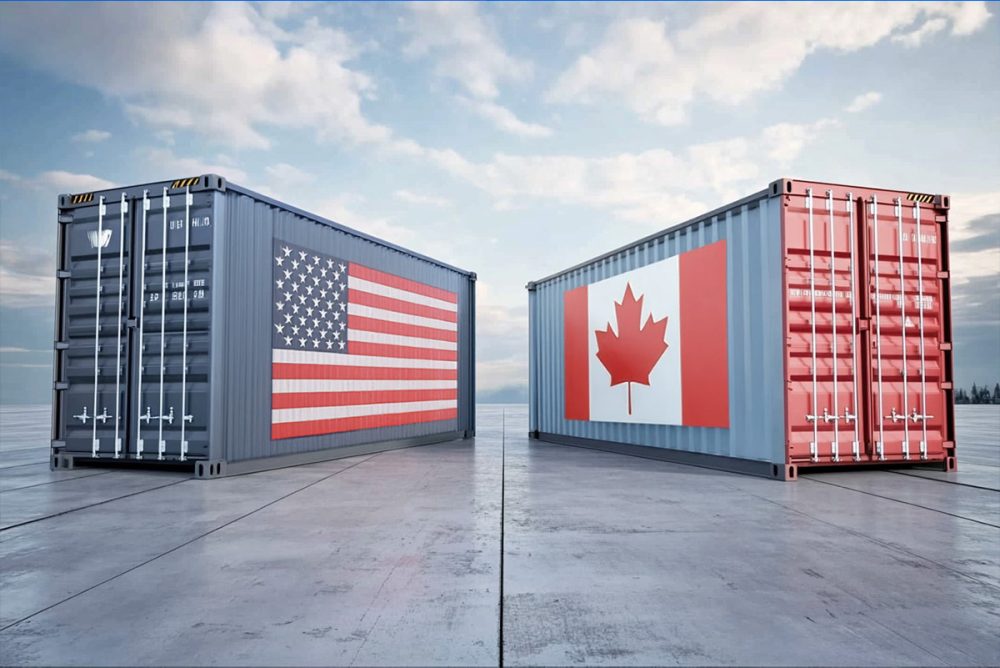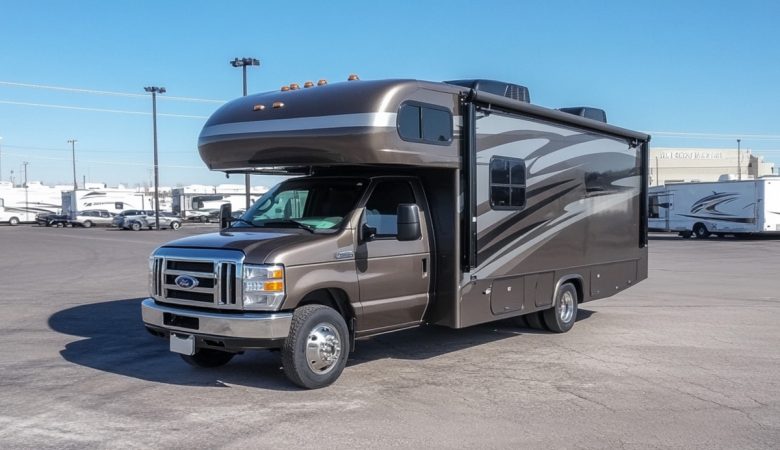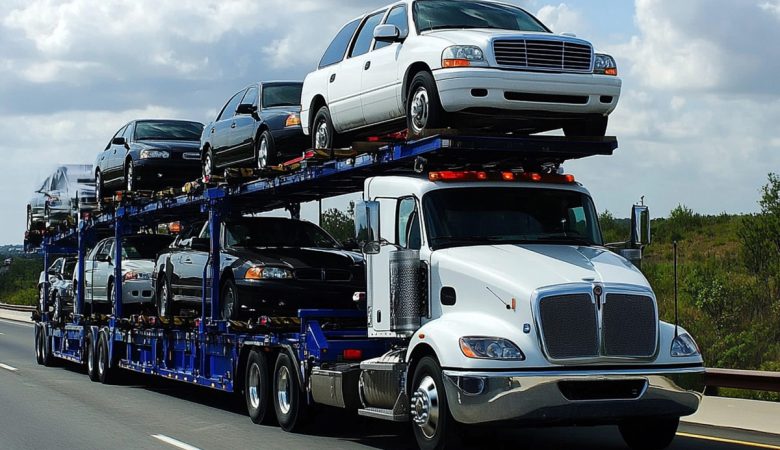Distinctions in shipping between the USA and Canada cover different aspects, regulations, and steps that affect the flow and cost of logistics services. Knowing these differences is important for businesses and people moving goods, including used vehicles, across borders or importing them into the US or Canada from other countries. In this article, we will take a look at the key factors to consider when it comes to the shipping differences between these two countries.
If you want to ship a used vehicle inside the USA or Canada, make use of EasyHaul‘s comprehensive services. We handle all the shipping paperwork, offer 24/7 tracking, cargo insurance, 30 days of free vehicle storage for international freight, and much more. To find out more details, get a shipping quote or contact our team with any questions you may have.
The Basics of Shipping Regulations in the US and Canada

Although the United States and Canada have their trade and logistics based on the USMCA (the United States—Mexico—Canada Agreement), previously known as the NAFTA (North American Free Trade Agreement), there are still some shipping regulations influencing the logistics industry.
At the Canadian border, US Customs and Border Protection oversees goods to prevent illegal items from entering the US. Formal shipments from Canada need specific documents like the importer ID number, bill of lading, commercial invoice, and electronic export information form. These documents help track shipments, and additional forms may be required depending on the type of shipment.
When shipping from Canada to the US, certain regulated products may require a special import and export license. International freight companies must follow strict regulations when transporting shipments. These logistics companies need to stay updated on the changing rules set by both governments to ensure smooth transportation of goods.
With EasyHaul, you can forget about issues with documentation. Our team will handle everything you need to ship a used car, motorcycle, or other vehicle type inside the US and Canada. We can also arrange international freight to the major maritime ports, taking care of US Customs clearance. That is why EasyHaul will be your reliable partner for vehicle shipping.
Differences in Shipping Taxes in the US and Canada
When comparing logistics regulations in different countries, taxes play a huge role in the analysis. Understanding how taxes impact shipping costs and procedures can help both businesses and clients plan logistics operations better.
In the US, regular-sized shipments are not subject to taxes for freight shipping. However, there are charges applicable to imported items. For example, the U.S. Customs and Border Protection institution has some basic regulations and fees for importing a motor vehicle into the United States.
In Canada, there’s a Harmonized Sales Tax (HST) and a Goods and Services Tax (GST). Their rates change depending on the province or territory. For example, the GST rates can vary from 5% in Quebec to 15% when shipping to Nova Scotia, Labrador, New Brunswick, and some other provinces. When delivering your goods within Canada, including used vehicles, you just need to think about the GST, which differs by province.
Also read: Vehicle Import Regulations in the USA and Canada
Differences in Customs Clearance and Documentation
Cross-border shipping involves following customs rules and having the necessary paperwork. This includes a bill of lading, commercial invoices, and sometimes customs declarations. Prior to planning a used vehicle shipment, we always recommend checking the latest updates in the regulations regarding paperwork needed for logistics operations. Contact EasyHaul with any questions about shipment documentation, and we will guide you through these complicated questions.
One key difference between shipping to the USA and Canada is whether you use a customs invoice or a commercial invoice. In some cases, you may need the first document, while in others, it will be enough to have just a commercial invoice. While they serve the same purpose and often appear similar, there’s a distinction. Both countries have unique processes and rules for customs clearance.
When ordering used vehicle shipping services at EasyHaul, you do not need to worry about customs clearance and paperwork. Our specialists, who are aware of all aspects of documentation and the latest updates, will handle everything. That is just one of the advantages you get when shipping a used car inside the US or Canada with EasyHaul.
We Are Your Reliable Partner in Shipping Vehicles
Understanding the differences in shipping operations and regulations between the USA and Canada is important for anyone considering shipping goods, including used vehicles. Logistics companies and their customers can make shipping smoother by following some specific rules and complying with established shipping requirements.
With EasyHaul, you can experience all the advantages of vehicle shipping to the USA and Canada. You can be sure that our team will provide you with coherent informational and service support for whatever request you may have. To start, create an account and get acquainted with our beginner’s guide, get a shipping quote, upload a copy of your government-issued ID or passport, and place an order. Do not hesitate to contact us via the online form or call us at +1 (360) 776-3596 (6:00 AM–4:00 PM, PST, Mon-Fri).






Leave a Reply
You must be logged in to post a comment.